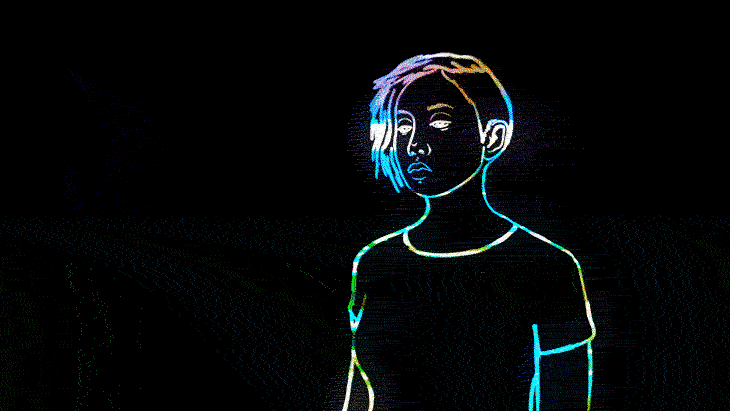Gender & Technology Research Project
Nothing in a face ©Suture Blue
The University of Cambridge Centre for Gender Studies, in collaboration with the Leverhulme Centre for the Future of Intelligence (CFI) ran a two-year project on Gender & Technology from September 2020 to September 2022. The project was headed by Professor Jude Browne (PI) and Dr Stephen Cave and included the Christina Gaw Post-doctoral Research Associates, Dr Eleanor Drage and Dr Kerry Mackereth.
The Gender & Technology Research Project was generously funded by Christina Gaw, to develop innovative frameworks and methodologies that support better, fairer and more equitable AI. It aimed to bridge the gap that exists between theoretical research on AI’s gendered impact and technological innovation in the AI sector.
The Project: a collaboration between industry and academia.
The Gender & Tech project was a cutting-edge collaboration between academia and industry premised on the mutual exchange and development of ideas, knowledge and products. The project translated scholarship into practical knowledge for industry, while also allowing industry approaches to inform academic work in the field of Gender Studies. It ultimately aimed to provide the AI sector with practical tools for creating more equitable AI informed by intersectional feminist knowledge.
As AI becomes increasingly prevalent in society, there is a clearly demonstrated need to analyse the challenges posed by AI and how AI may differentially affect individuals along the lines of social and political factors including (but not limited to) gender, race, class, age and ability. AI is perceived as a neutral, unbiased tool that makes fairer and more equitable decisions than human beings. Yet, AI can replicate and intensify the political and sociocultural conditions and power relations within which it is embedded. Hence, attempts to use AI to address inequality might actually exacerbate the inequality it attempts to solve. The project considered how AI may entrench or accentuate existing inequalities, as well as who makes AI and how the demographics of the AI workforce may affect the design and output of AI technologies. The research hoped to assist industry partners in drawing out and benefitting from AI’s immense potential, while simultaneously mitigating against AI’s potential harms.
The Christina Gaw Postdoctoral Research Associates
The project team was a multidisciplinary research collective that brought different theoretical perspectives to bear on issues relating to gender and AI. Eleanor Drage specialises in contemporary feminist, anti-racist, posthumanist and queer theory and their practical relevance to the interrogation and improvement of technical systems. Her recent publications use theory from gender studies to explore how humanity and technology co-constitute, with a particular focus on how technology performatively consolidates socio-cultural norms and assumptions. Kerry Mackereth examines histories of gendered and racialised violence and considers how contemporary AI may reproduce or legitimise these histories of violence. For example, she is currently working on a paper that examines how the concept of the ‘Yellow Peril’ shapes contemporary AI discourse. Together, the Gender & Technology research team contributed their collective knowledge of how gender studies advances our understanding of the relationship between gender and new technologies.
Thank you to Suture Blue for their generosity in allowing us to display their image on our website.

